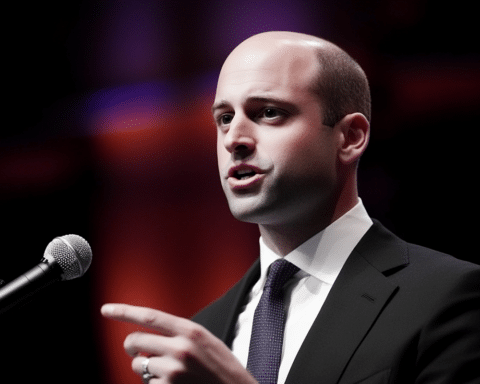A Massachusetts Air National Guard member accused of leaking classified military documents appeared briefly in court on Wednesday. The detention hearing to decide whether he should stay in jail while awaiting trial was postponed to allow the defence more time to prepare.
Jack Teixeira, 21, was initially scheduled for a detention hearing at the federal court in Boston, but the judge called it off after Teixeira’s attorney requested a two-week delay. The defence stated it needed more time to address the government’s detention request. A new date has yet to be set.
Handcuffed and dressed in orange jail attire on Wednesday morning, Teixeira waived his right to a preliminary hearing. He answered yes and no to questions about understanding his rights and the proceedings.
A charge of unauthorized retention and transmission of classified national defence information was brought against Teixeira last week under the Espionage Act. During his first court appearance last Friday, a magistrate judge ruled that he should remain in custody pending his detention hearing.
Teixeira allegedly shared highly classified military documents related to Russia’s war in Ukraine and other critical national security matters on Discord, a social media platform initially created for gamers. The breach has caused international concern and raised doubts about the United States’ ability to protect its secrets.
On Tuesday, Air Force leaders said they were investigating how a single airman could access and disseminate potentially hundreds of highly classified documents. The Air National Guard 102nd Intelligence Wing in Cape Cod, where Teixeira served, has suspended its intelligence mission pending further review.
Court records unsealed last week detailed how Discord billing records and interviews with social media contacts led the FBI to Teixeira.
Investigators suspect he led a private Discord chat group called Thug Shaker Central, with about two dozen members who discussed their favourite guns, shared memes and jokes, and talked about wars, including Russia’s invasion of Ukraine.
The FBI was told by a Discord user familiar with Teixeira’s online activities that a username associated with Teixeira posted what appeared to be classified information in December. According to court records, the person provided basic information about Teixeira, such as his name, “Jack,” his Air National Guard affiliation, and his Massachusetts residence.
The person also informed the FBI that Teixeira began taking classified documents home and photographing them instead of typing them out, fearing discovering his workplace transcriptions.

Teixeira’s motives remain unclear, but Discord group members characterized him as someone seeking attention rather than intending to inform the public about U.S. military operations or influence American policy.
The Biden administration has been working to mitigate potential diplomatic and military consequences since the leaks were first reported, reassuring allies and assessing the extent of the damage. The exact number of leaked documents remains unknown, with some estimates suggesting hundreds. The Associated Press has viewed around 50 documents.
Since the leak’s exposure, the U.S. government has worked diligently to repair any damage caused by releasing classified information. Intelligence agencies are collaborating with international partners to assess and minimize the impact of the leaked documents on ongoing operations and diplomatic relations.
The Department of Defense is also reviewing its security measures, with a particular focus on preventing similar breaches in the future. This includes enhancing cybersecurity protocols, reinforcing employee training on handling classified information and conducting thorough background checks on individuals with access to sensitive materials.
Teixeira’s case has garnered widespread media attention and sparked public debate about the balance between national security and freedom of information. While some argue that the leaks have exposed potentially dangerous gaps in the U.S. military’s security measures, others contend that this information should be publicly scrutinized to hold the government accountable.
As the legal process unfolds, Teixeira’s defence team is expected to argue against the charges, possibly citing freedom of speech and questioning the actual harm caused by the leaks. Meanwhile, the prosecution will likely focus on the severity of the leaks, emphasizing the potential risks to national security and the need to protect sensitive information.
Teixeira’s trial could set a significant legal precedent regarding handling classified information leaks and balancing national security and the public’s right to know. The outcome of this case may also influence future government policies and practices related to the protection and dissemination of classified documents.
In the meantime, the Biden administration remains committed to addressing the implications of the leaks and working to ensure the nation’s secrets are well-guarded moving forward.




